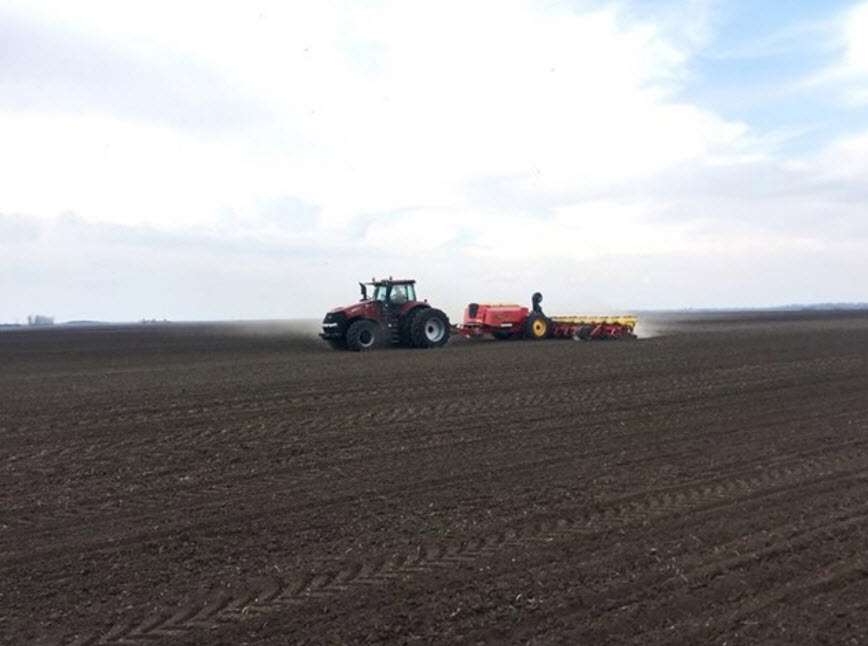Record was set in western Hungary
By Diego Flammini
Assistant Editor, North American Content
Farms.com
Case IH and Väderstad worked together to set a new record for the amount of corn planted in 24 hours.
Using a Magnum 380 CVX tractor and 16-row Väderstad Tempo L planter, the team planted 500ha (1,235 ac) of corn. The work was spread across two fields in western Hungary and included fertilizer and insecticide application.
And the team maintained proper agronomic practices.
“(The planting) was done to exact agronomic guidelines, ensuring that the maize was planted with the same care and attention to detail – in terms of seed spacing and depth – that any farmer would use,” Case IH said in a release. “The quality of work during the record event was monitored by staff from (Hungary’s) Gödöllo University.”
The crop was planted in 30-inch row spacings at working speeds up to 24kph (14mph). The Magnum 380 CVX turned out to be the perfect tractor for the job, Case IH said.
“(The tractor and its) continuously variable transmission was chosen for the record attempt not only for its fuel efficiency and ease of use, but also it helped to quickly accelerate the tractor and implement up to the optimum working speed when pulling away from the headland at the beginning of each pass,” Case IH said in the release.

Case IH Magnum 380 CVX with the Väderstad Tempo L16 planter.
Photo: Case IH
The new record tops 448 hectares (1,107 ac) planted in 24 hours, which was set in the spring of 2012 by a team in Russia using a CLAAS Xerion 5000 tractor and Horsch planter.
Farms.com has reached out to Guinness World Records for confirmation of the record.